Francisca Edwiges Neves Gonzaga (1847-1935), known as Chiquinha Gonzaga, is considered one of the most important female figures in Brazilian music history. She was a feminist and abolitionist, and she was the first of many things: the first Choro composer, choro pianist, and female conductor.
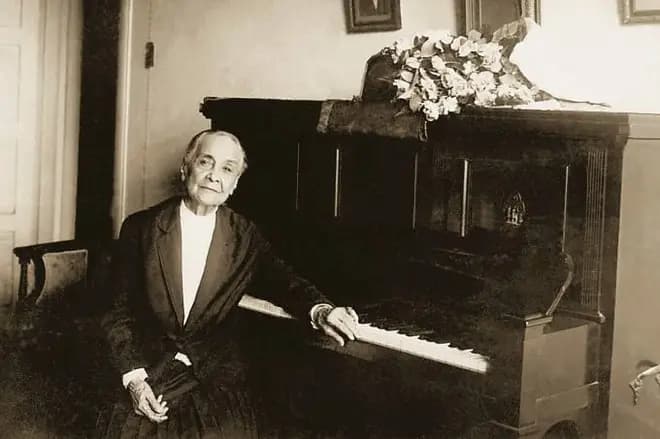
Francisca Edwiges Neves Gonzaga (Chiquinha Gonzaga)
Gonzaga was born in 1847 in Rio de Janeiro, Brazil. It was when the time that slavery still existed in Brazil. Gonzaga was born into such a usual, yet unusual family at the time: her mother, Maria Rosa de Lima was a daughter of a slave, and her father, José Neves Gonzaga Basilieu, was a white, high-ranking military officer. As the favorite daughter of Basilieu, Gonzaga was raised as a sinhazinha (a lady boss or a society lady) and was given a good education. She grew up taking piano lessons; she wrote her first composition, the song ‘Canção dos Pastores’, at age 11.
At 16, her father arranged for her to marry Jacinto Ribeiro do Amaral, a businessman who also worked for the Navy. The marriage was not a happy one and many conflicts were created over time, including her husband disallowing her from playing the piano. As a result, she left him after the third child was born. Divorce was not legal at the time, and her leaving her husband was disapproved of by society, including her parents. She was abandoned by her family. Without financial and any emotional support, Gonzaga supported herself by composing and giving piano lessons. In the 1880s, she moved to São Gonçalo, where she met Joaquim Callado, known as the Father of the Chorões. She was invited to join the traditionally male choro group and became the choro pianist (Pianeiros). Her reputation as a composer started to kick off when the choro piece, polka Atraente(“Attraction”) was published in 1877.
Chiquinha Gonzaga: Atraente
The piece became a big hit immediately and over 10 editions of different instrumental arrangements were made in 9 months. This piece remains one of her most recorded compositions.
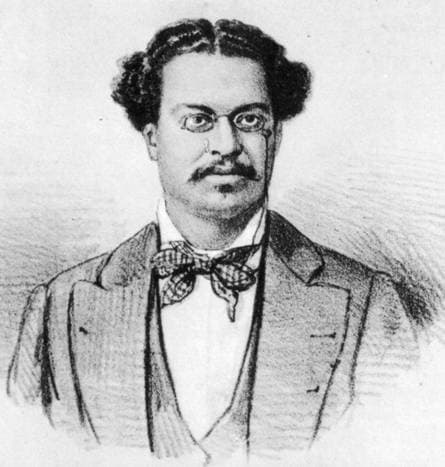
Joaquim Callado
After the instant success of Atraente, Chiquinha Gonzaga continued to write music. Gonzaga wrote more than two thousand compositions throughout her life, and she always included Brazilian popular genres in her works. In 1899, she wrote O Abre Alas, the first Brazilian carnival march. It was written for the carnival group called Rosa de Ouro (Golden Rose), of which Gonzaga was a neighbor. It was not only the first carnival march, but it was also the first recorded Carnival song in the country (1913).
Chiquinha Gonzaga: Ô abre alas!
Operetta and theater plays were popular genres in Brazil in the late 19th and early 20th centuries. Chiquinha Gonzaga included 77 compositions in those genres. In 1895, Gonzaga wrote her most recorded work, Gaúcho “Corta-Jaca.” It was originally a song from the burlesque operetta Zizinha Maxixe. The maxixe refers to a musical dance genre popular in Rio de Janeiro that combines the African Batuque with Portuguese music. Corta jaca is a Portuguese term meaning “cut the jackfruit;” the work is a Brazilian tango with energetic spinning and twisting movements. Corta-Jaca has a nickname “President Hermes da Fonseca’s Administration” as the first lady Nair de Teffé had once performed this piece at the Catete Presidential Office (Palácio do Catete).
Chiquinha Gonzaga: Gaúcho (Corta-jaca)
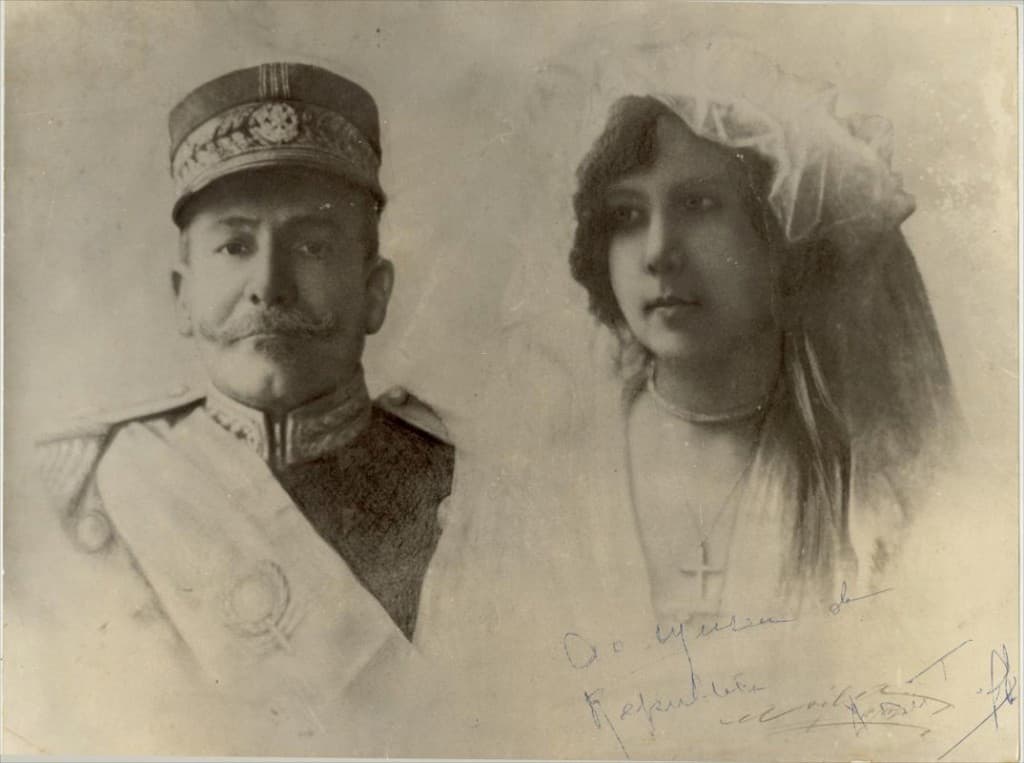
Wedding picture of Hermes da Fonseca and Nair de Teffé, December 8, 1913.
(Petrópolis, RJ / Museum of the Republic Collection)
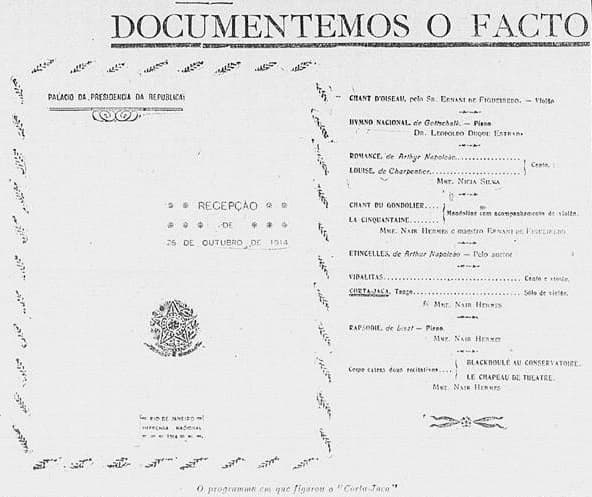
(The Corta-jaca in the reception schedule of the Palácio do Catete / A Rua, November 6, 1914)
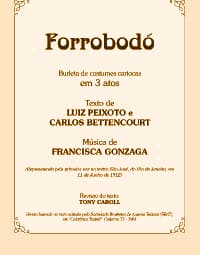
Chiquinha Gonzaga: “Forrobodó”
Among all of Gonzaga’s successful works, Forrobodó (Forrobodó de massadas) was perhaps the most successful stage work. This maxixe is a comedy about the ball salon in the Cidade Nova (downtown Rio de Janeiro). This work is highly associated with black people and the lyricists Luís Peixoto and Carlos Bittencourt included a lot of black people’s slang in the play. It caused a scandal and Gonzaga was even arrested at the première in 1912. However, this work was a huge success and it had over 1500 consecutive performances in Rio de Janeiro.
Chiquinha Gonzaga: Forrobodó
In addition to being a successful musician, Chiquinha Gonzaga was an advocate and an activist. She established the Brazilian Society of Theatrical Authors (SBAT) to protect composers’ rights. She was an abolitionist, and she used the money from selling her music to support the movement. She was also highly involved in the suffragist movement in Brazil. She passed away in 1935 at the age of 87 but her contributions and legacy are still remembered and celebrated today.
For more of the best in classical music, sign up for our E-Newsletter



